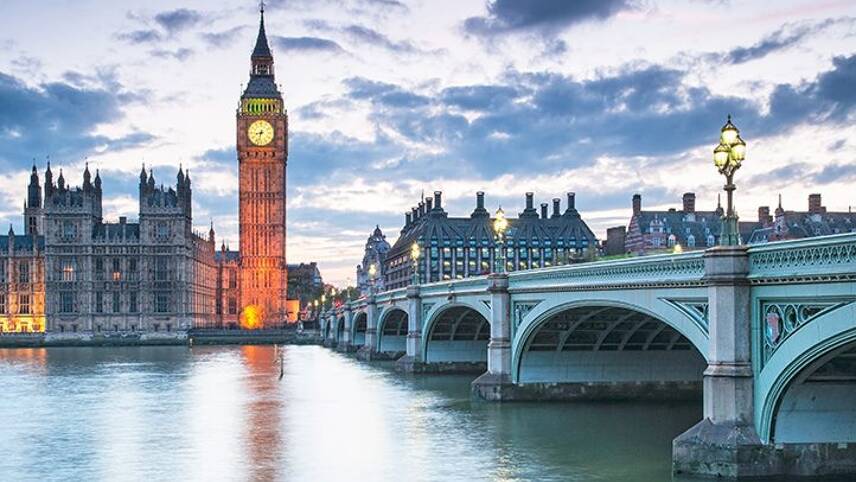Register for free and continue reading
Join our growing army of changemakers and get unlimited access to our premium content

Following COP26
The Climate Change Committee (CCC) has released a statement this morning (2 December) offering its thoughts on how the UK can implement measures listed under the Glasgow Climate Pact to strengthen its approach to reaching a legally binding net-zero emissions target set for 2050.
Under the Glasgow Climate Pact, nations are encouraged to formulate and publish updated Nationally Determined Contributions (NDCs) to the Paris Agreement for 2030, by the time COP27 begins in Egypt next year.
These nations should strive to align their climate targets and plans with a 1.5C temperature pathway, the text says. Some nations had been pushing for this to be a requirement, others for its omission entirely. In the end, the document states that the UN will “take into account different national circumstances”. Nations including China, South Africa and Indonesia have stated they will likely need more time.
In a first for any COP, the final text mentions fossil fuels, stating that “unabated” coal power should be phased down as a priority and that “inefficient subsidies” for all fossil fuels should be removed. The final draft had included “phase out” as the official language, but this was changed to phase down after objections from India.
Following COP26, the CCC has called on the UK Government to strengthen domestic and international approaches to reaching net-zero and aligning the global economy with the 1.5C target of the Paris Agreement.
CCC chairman, Lord Deben, said: “The UK must not walk away after COP26. Glasgow was a step forward in global efforts to address climate change, including a genuine increase in ambition to reduce emissions worldwide. We also saw important technical advances, with new rules agreed for reporting emissions and on international carbon trading, and multiple initiatives and sector deals. This is real and welcome progress, but success depends on what happens now.
“The next year is critical for climate action in the UK and internationally. At home, we need to walk the talk and urgently deliver actions in the Net Zero Strategy. Globally, the UK must continue to encourage stronger action on climate and insist on rapid emissions reductions and stronger adaptation through all diplomatic channels. The ultimate success of the Glasgow Climate Pact will be measured by climate risks averted, not words on a page.”
Renewed action
With COP26 still putting the world on course for temperature increases of between 2.1C and 2.7C, the CCC believes the UK should use its COP Presidency position and team to deliver a crucial 12 months of climate action that sets the world up to deliver emissions reductions in line with scientific requirements through to the 2030s.
To build on this, the CCC has made a series of new recommendations to the Government. The watchdog notes that the UK will have to publish a strengthened Nationally Determined Contribution (NDC) prior to COP27. It calls on the Government to include stronger plans on climate adaptation through quantitative targets and potentially making the new targets legally binding. This, the CCC suggests, should also clarify approaches to offsets and carbon removal technologies.
The CCC notes that the UK already has one of the most ambitious 2030 targets for reducing emissions in the world and one that is consistent with the Paris Agreement. However, the CCC notes that steps have not been put in place to meet it.
Despite the publication of the Net-Zero Strategy, the Government has refused to share any detail on actual emission reduction requirements for sectors to reach net-zero. The CCC has called on the Government to strengthen the delivery of the net-zero strategy, including “robust” plans to reduce agricultural emissions.
With the Glasgow Climate Pact calling for the “phase-out of inefficient fossil fuel subsidies”, the CCC has called for the Treasury to review the role of the tax system in reaching net-zero and delivering a more consistent and reflective carbon price. Importantly the CCC believes that no fossil fuel subsidy should be classified as “efficient”.
Prior to COP26, the Treasury warned that policies must be put in place to address a £37bn deficit that could arise from a loss of tax revenue as the shift away from fossil fuel continues.
International efforts
On international action, the CCC suggests that the UK applies stronger product standards to imported goods, while also reviewing carbon border adjustment mechanisms and trade levers.
With the UK holding the COP Presidency for the next year, until COP27 in Egypt, the CCC also calls for the Government to continue to prioritise high-level leadership through the Presidency team.
Specifically, the CCC notes the importance of the UK steering progress on the delivery of doubling funding for climate adaptation through transparent reporting. Additionally, the UK will need to support the establishment of dialogue on loss and damage.
The CCC also claims that the UK could revisit its climate finance contributions by restoring a commitment to spend 0.7% of GDP on climate aid as soon as possible.
The CCC will publish a comprehensive assessment of UK progress in summer 2022.
Matt Mace


The CCC and Govt know perfectly well that the Glasgow Climate Pact gets nowhere near the scale and pace of emission reductions required. The Paris targets may have been just about OK in 2015, but we spent the last 6 years strongly *increasing* emissions, so now need to get near-zero by 2030, not 2050. The CCC continues its feeble warnings (compared with much stronger alarms from the IPCC and UN), its complacent satisfaction with the UK’s too-slow progress (including ignoring 200 million tons/year of import-driven emissions) and action-recommendations that are hopelessly inadequate and unspecified. What exactly must Govt and we all do to near-eliminate the 600 million tons/year of CO2 emissions we generate by 2030?